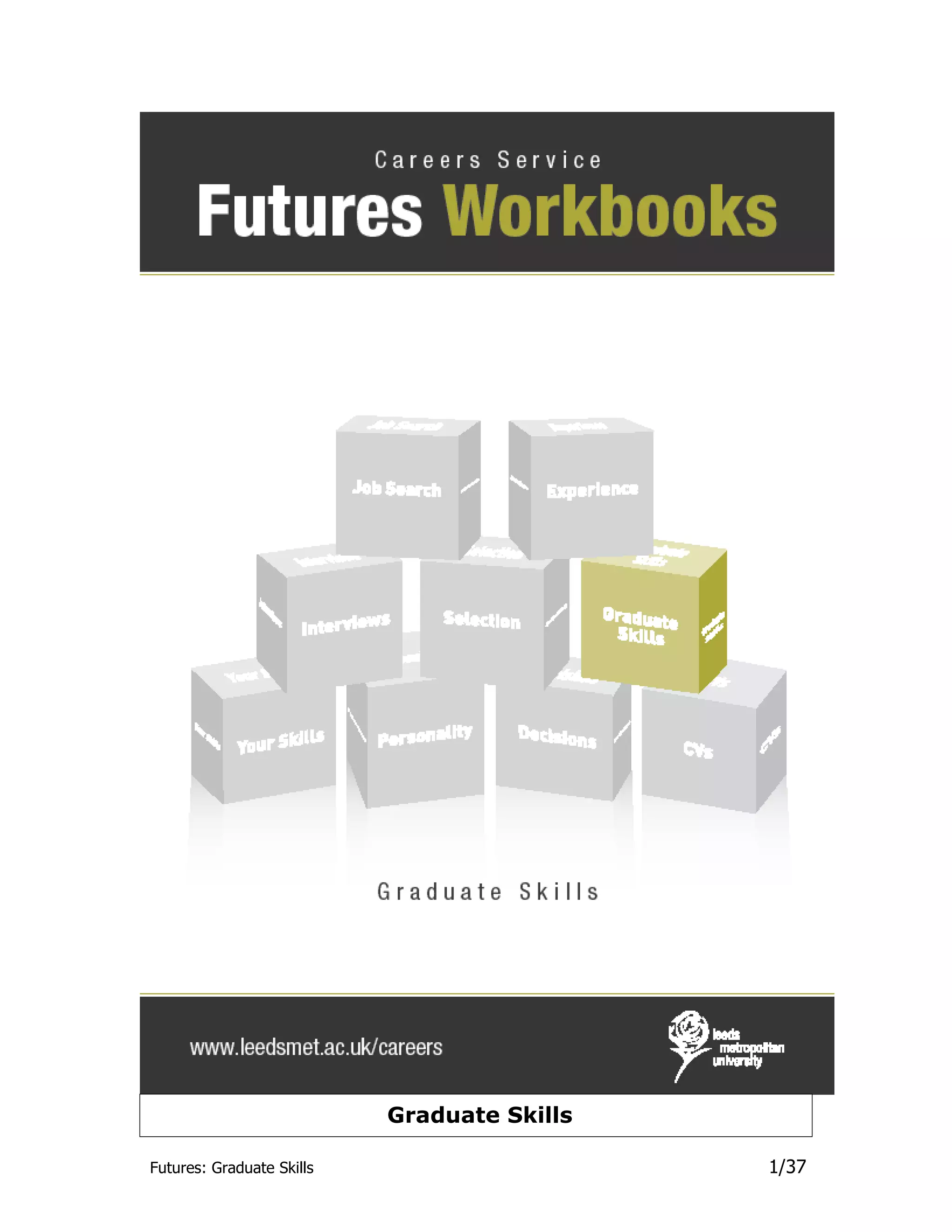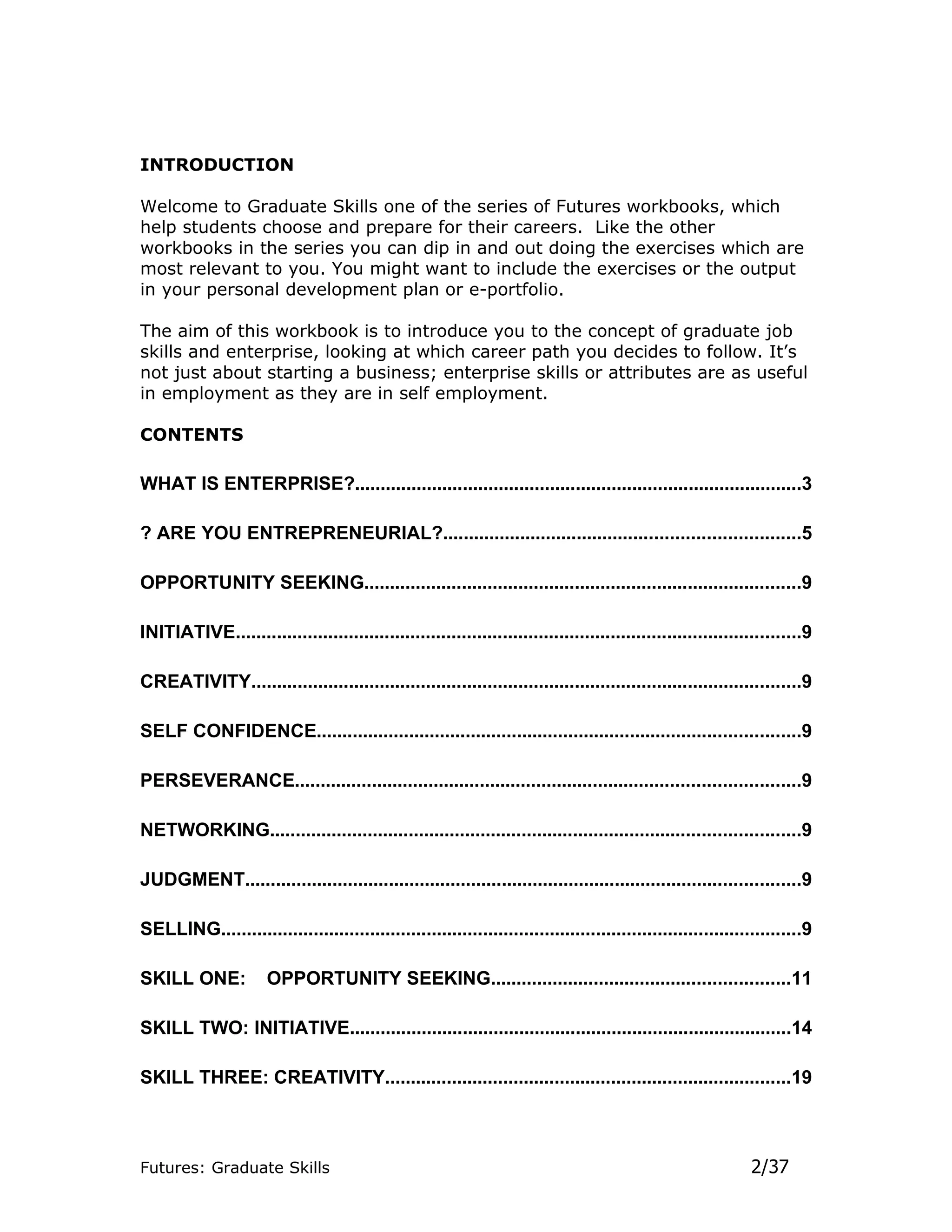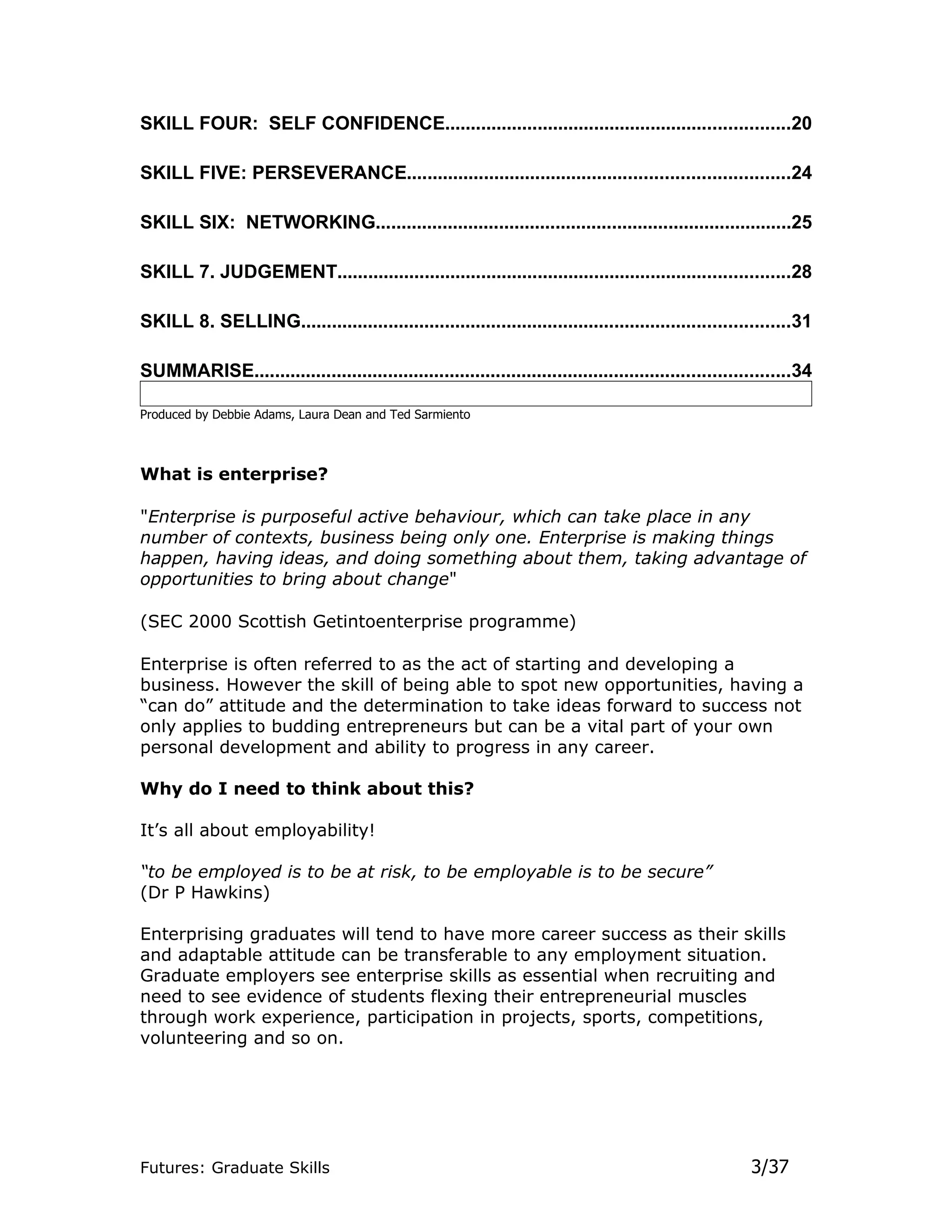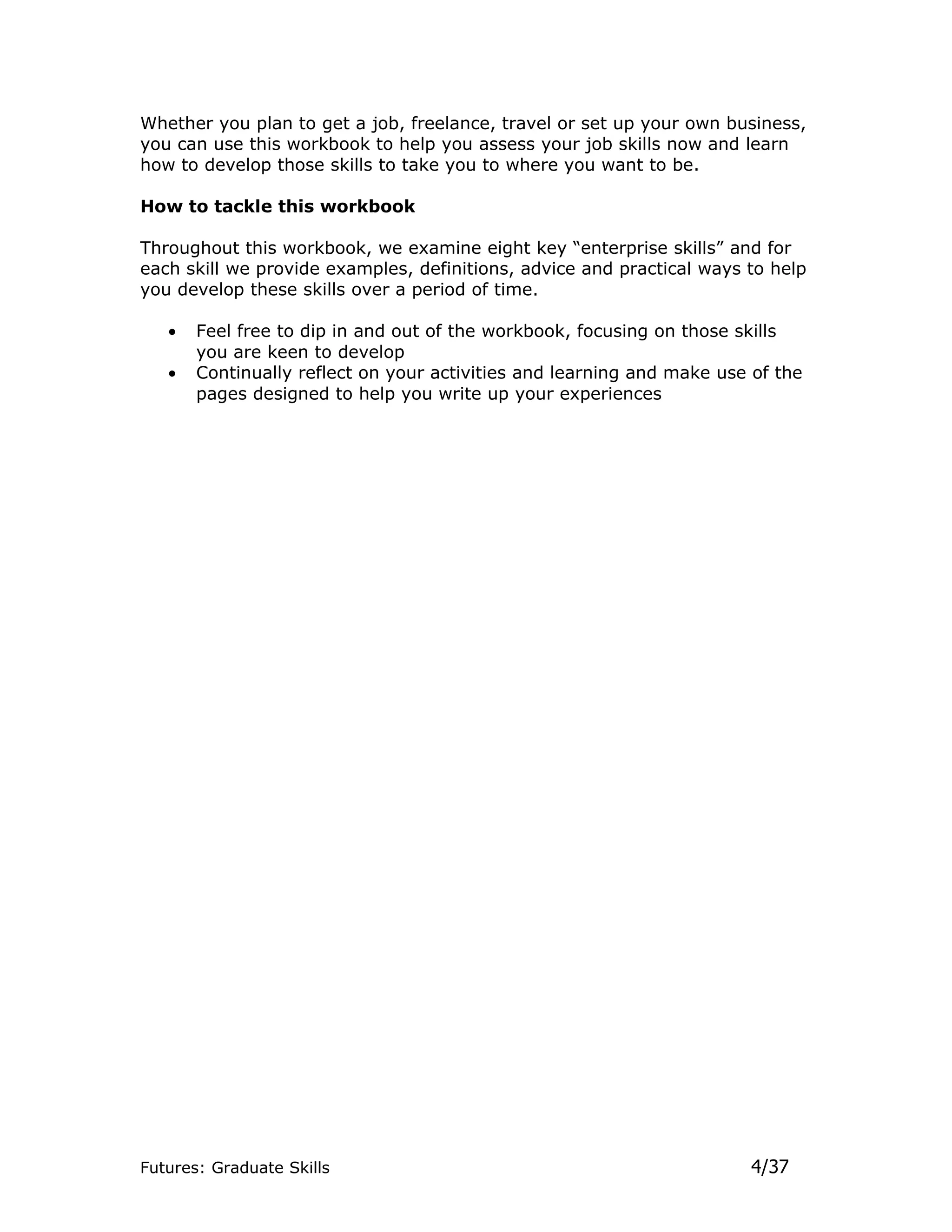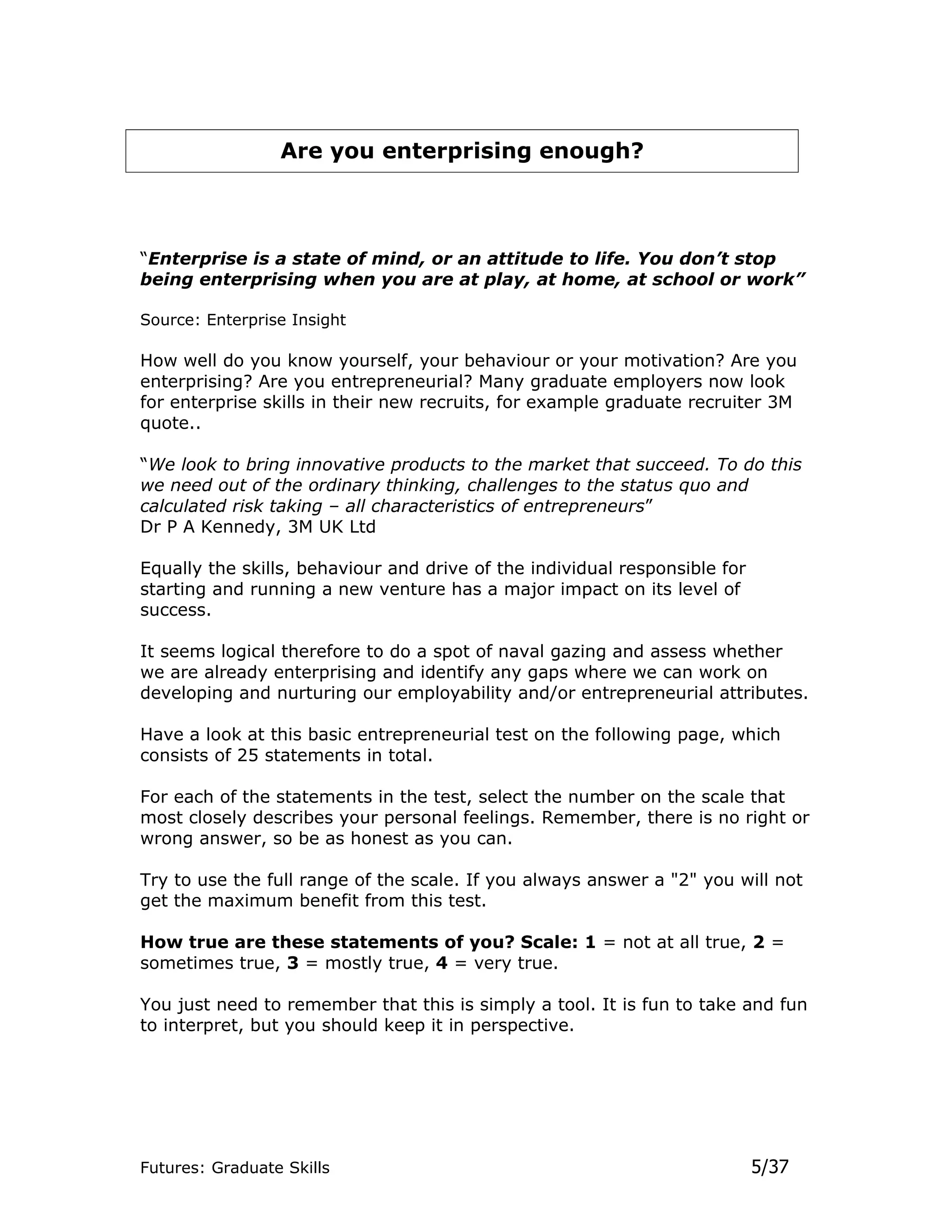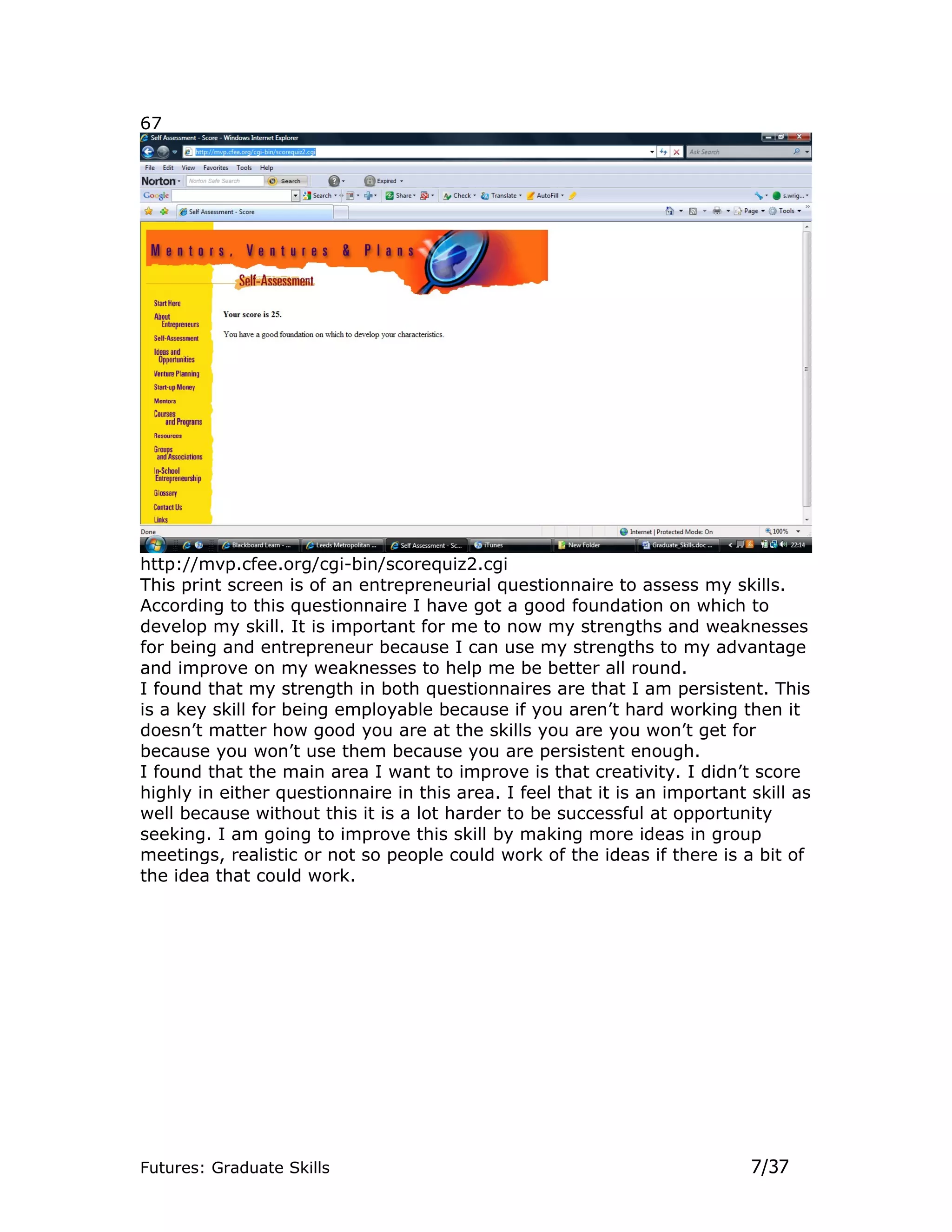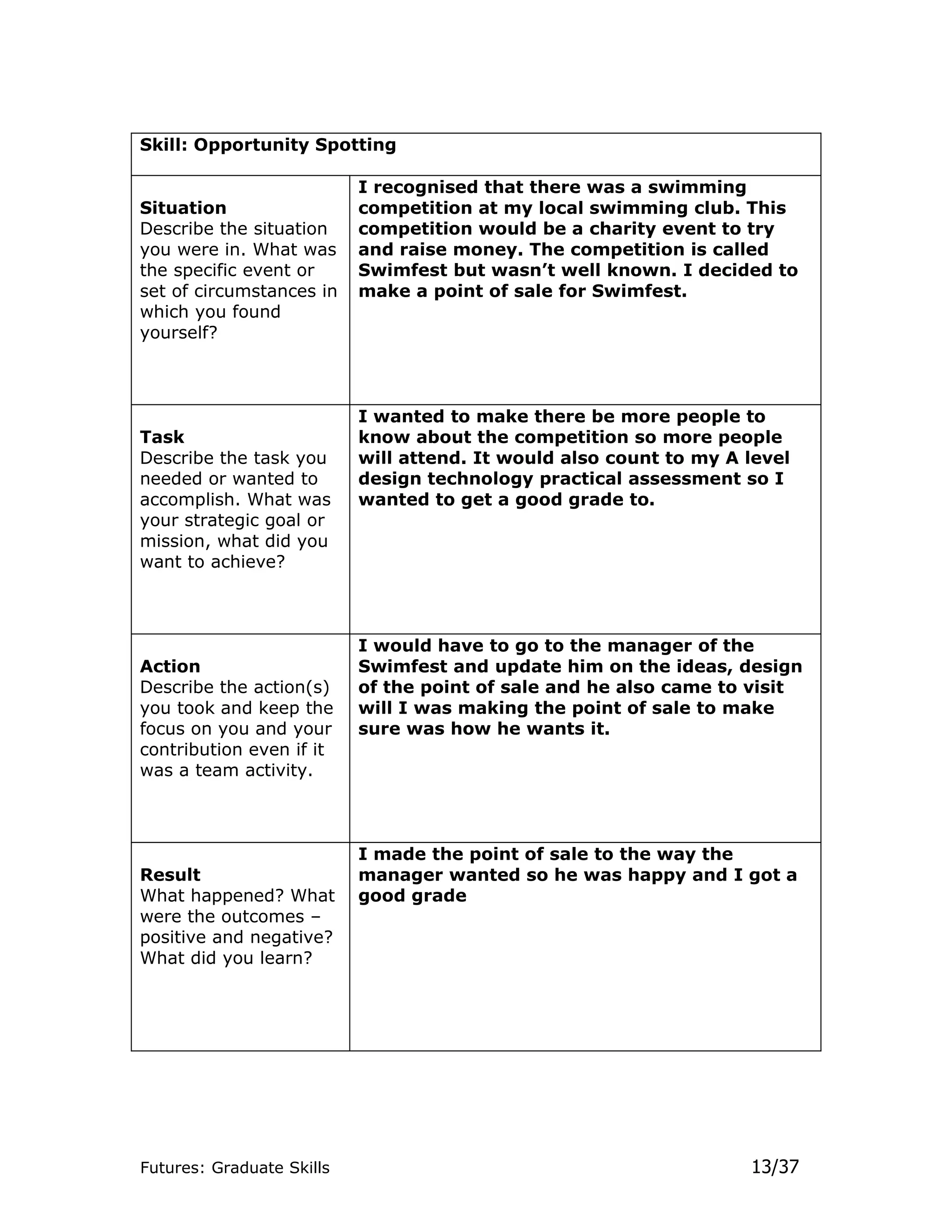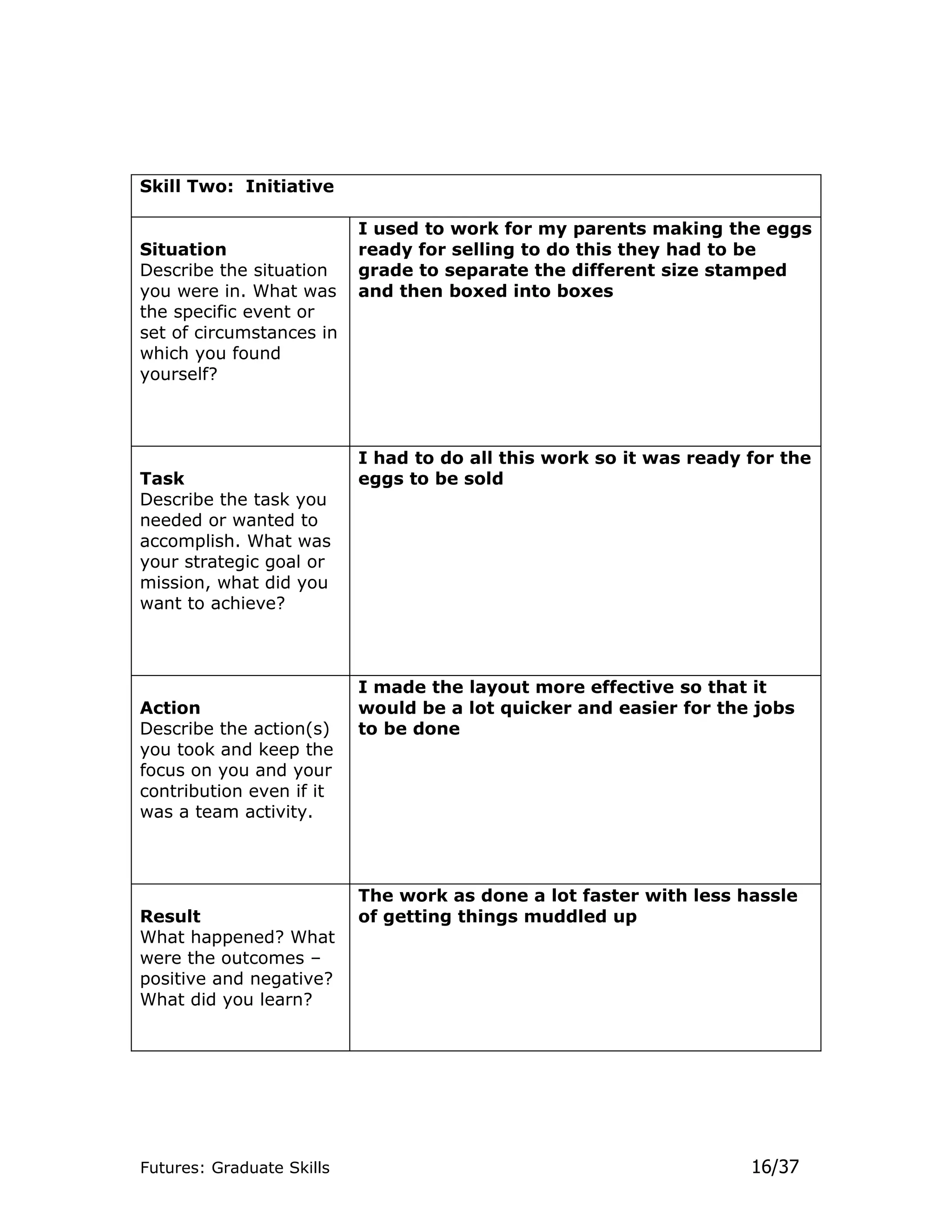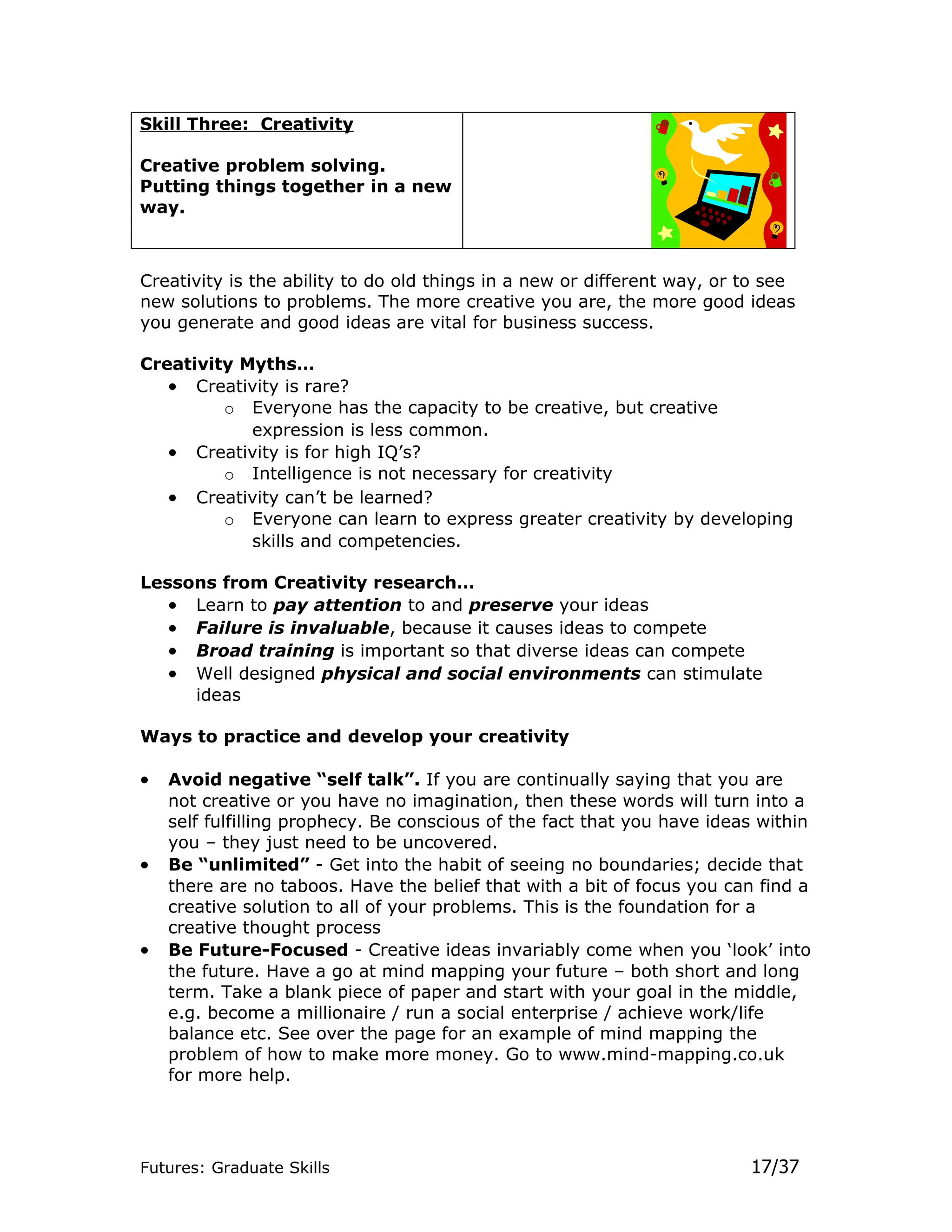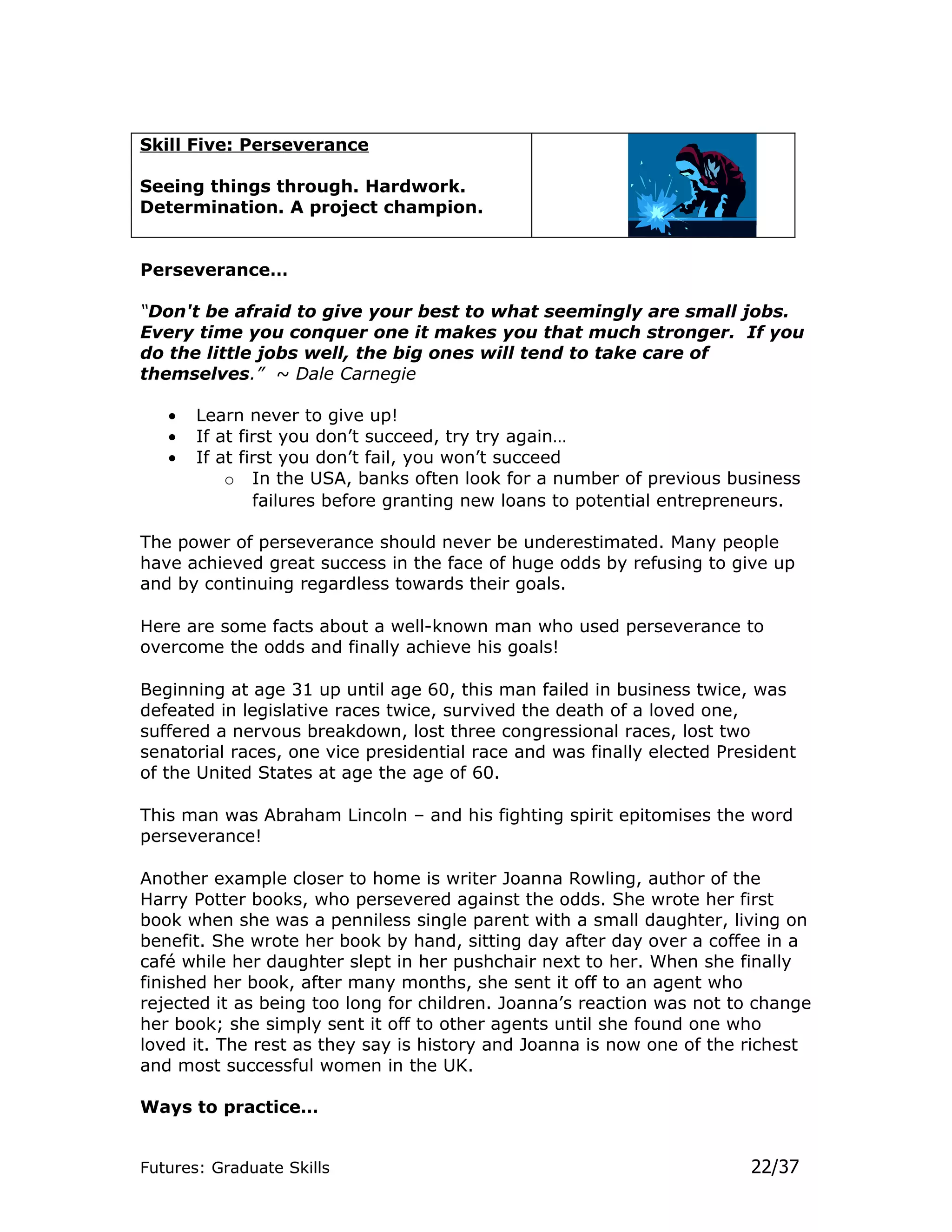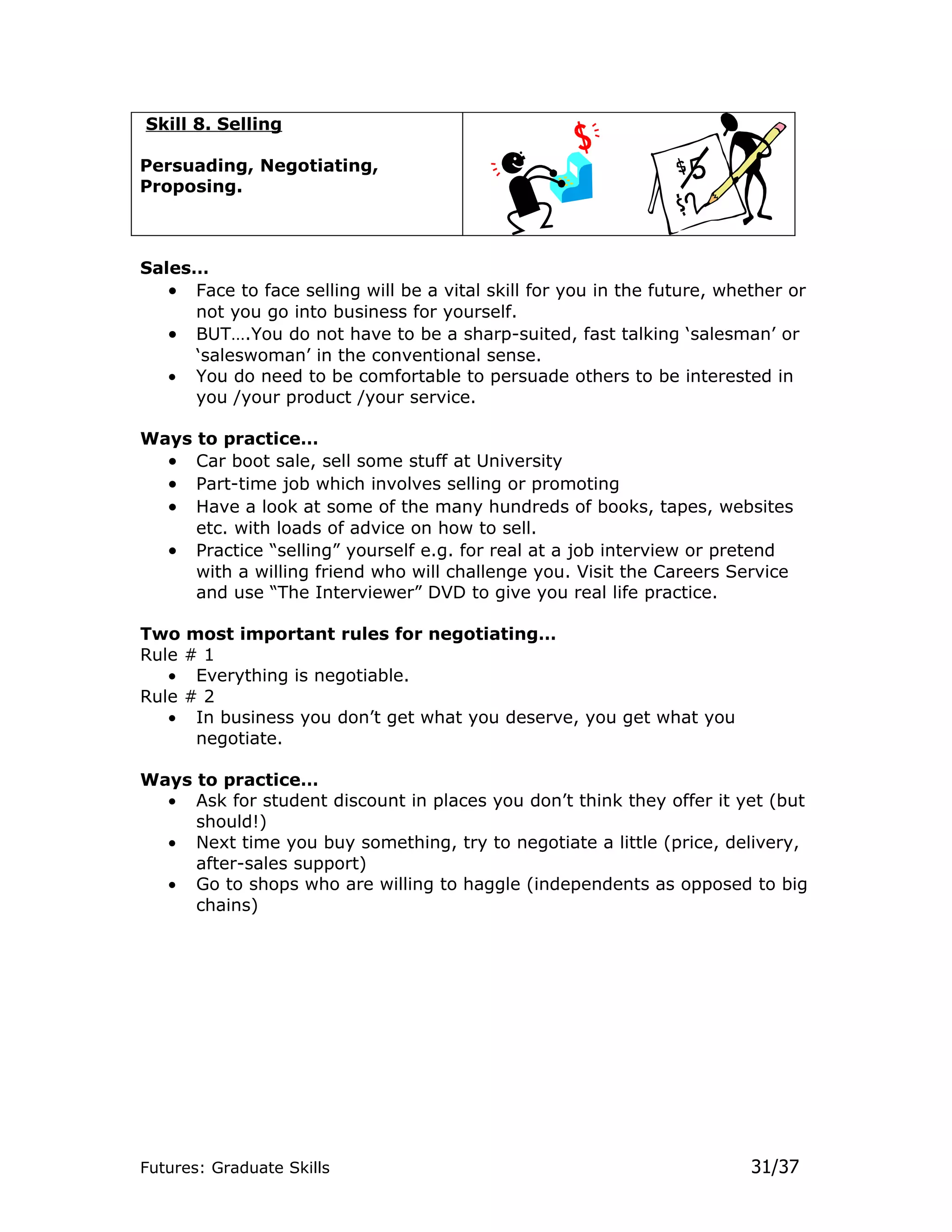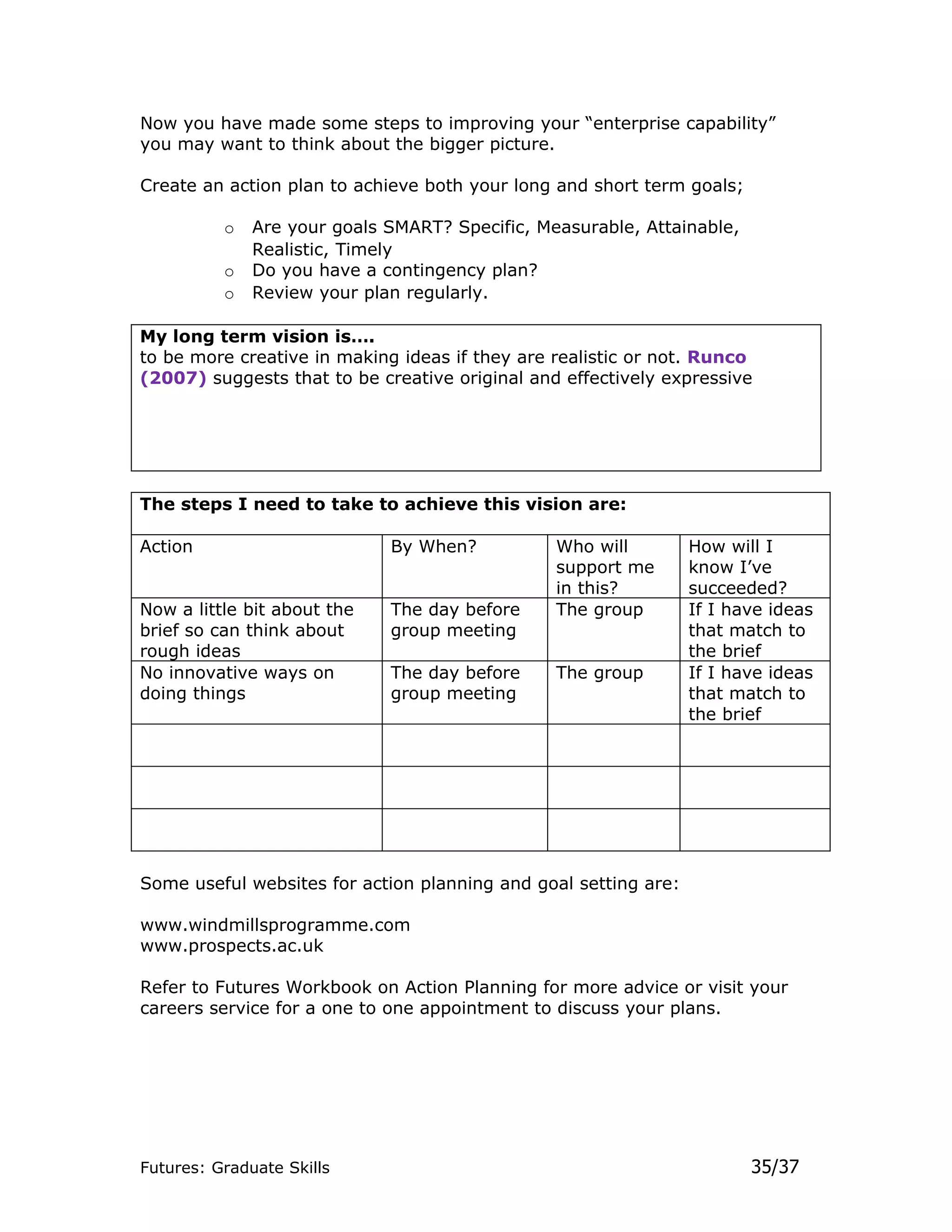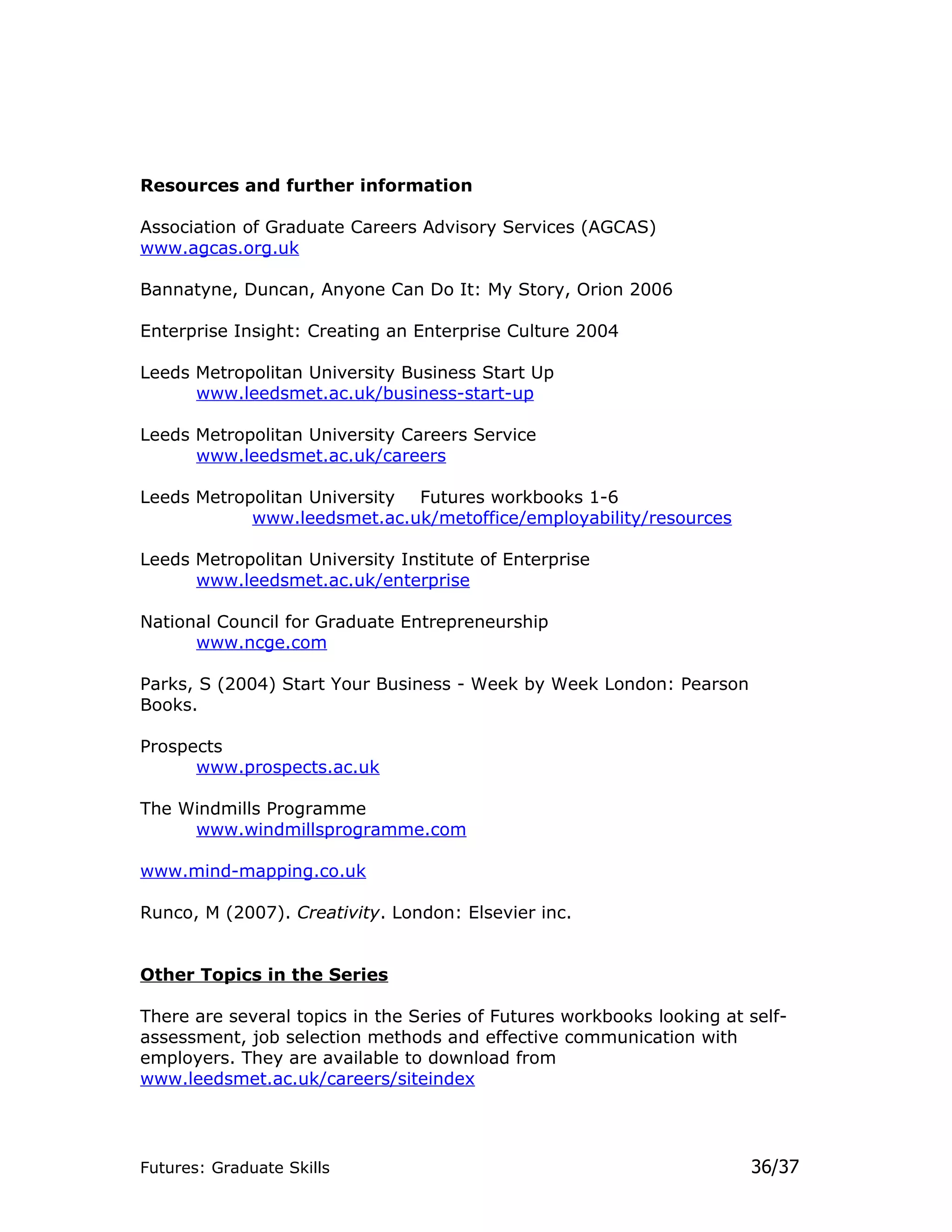The document provides an entrepreneurial self-assessment test to help students evaluate their enterprise skills. The test consists of 25 statements to which students assign a score from 1 to 4 on how true each statement is of them. The scores are then totaled to assess a student's entrepreneurial tendencies. Developing enterprise skills is important for employability as graduate employers seek students with initiative, creativity, and a drive to succeed. Completing the self-assessment can help students identify skills to focus on improving.
